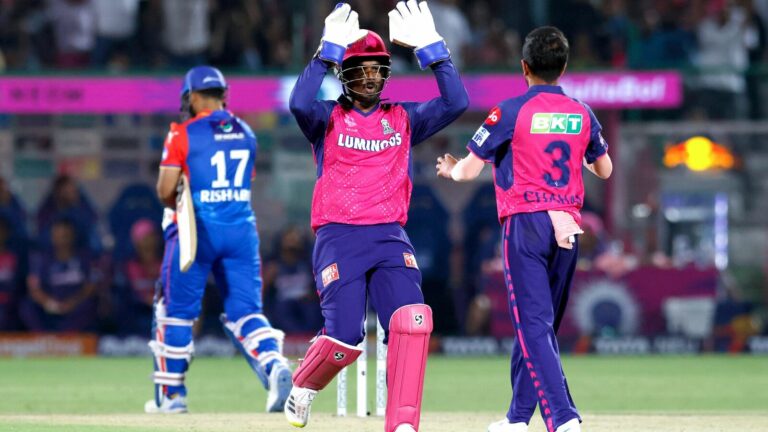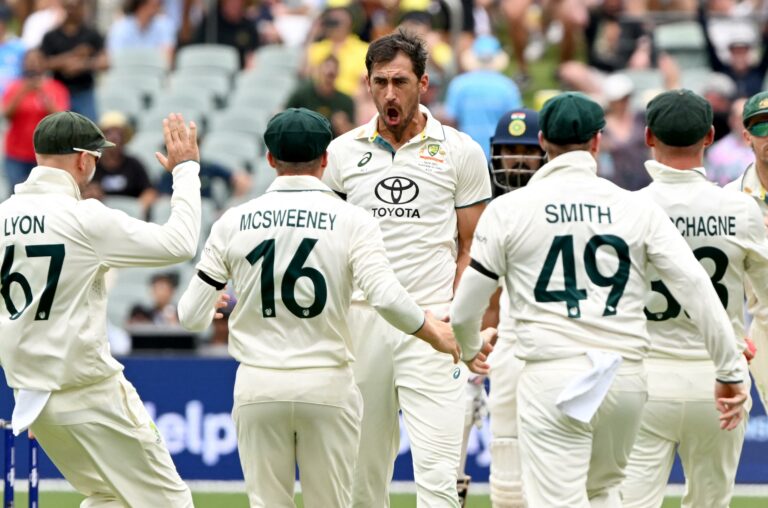Leadership Lessons from Cricket Legends
Online Cricket ID, Online Cricket ID: Cricket captains play a pivotal role in leading their team to success both on and off the field. One key trait that sets successful captains apart is their ability to remain calm and composed under pressure. Whether it’s making quick decisions during a tense match situation or dealing with external distractions, a captain’s ability to stay level-headed can inspire confidence in their team and lead to positive outcomes.
Another important trait of successful cricket captains is their strong communication skills. Clear and effective communication is essential in conveying strategies, motivating teammates, and fostering a sense of unity within the team. Captains who can articulate their vision, listen to input from team members, and provide constructive feedback are better equipped to lead their team to victory.
Effective Communication Skills on and off the Field
Clear and concise communication is a cornerstone of effective leadership both on and off the cricket field. Captains who are able to convey their ideas, strategies, and expectations with clarity are more likely to inspire trust and confidence among their team members. Whether it’s providing tactical instructions during a match or offering constructive feedback in a team meeting, the ability to communicate effectively can make a significant difference in how well a team performs.
Moreover, successful cricket captains understand the importance of listening attentively to their team members. By actively engaging in two-way communication, captains can foster a culture of open dialogue and collaboration within the team. This not only helps in building strong relationships but also allows for the exchange of ideas and perspectives that can ultimately lead to better decision-making and improved team cohesion.
Leading by Example: Work Ethic and Determination
The work ethic and determination displayed by a cricket captain can have a profound impact on the team’s overall performance. When a captain leads by example, showing unwavering dedication to practice sessions, physical fitness, and skill improvement, it motivates team members to follow suit. This sets a high standard for the team to strive for excellence in their individual preparation and performance on the field.
Furthermore, a captain’s determination in the face of challenges and setbacks can inspire resilience in the team members. When the leader shows a relentless drive to push through difficult situations and maintain focus on the ultimate goal, it instills a sense of confidence and belief in the team’s ability to overcome obstacles. This mental strength cultivated by the captain through work ethic and determination can be a key factor in steering the team towards success in competitive matches.
Building Trust and Respect among Team Members
To build trust and respect among team members, it is essential for a cricket captain to demonstrate integrity and transparency in their actions. By being honest and consistent in their behavior, captains can foster an environment of mutual trust within the team. Respect is earned through actions rather than words, so it is important for captains to lead by example and treat every team member with dignity and fairness.
Additionally, creating open lines of communication and actively listening to the concerns and ideas of team members can help in strengthening trust and respect. Team members feel valued when they know their opinions are heard and considered, which in turn boosts their morale and commitment to the team’s goals. A captain who takes the time to understand the perspectives of each team member and encourages open dialogue lays a solid foundation for a culture of trust and respect within the team.
Strategic Decision-Making in High-Pressure Situations
Cricket captains play a crucial role in shaping the outcome of high-pressure situations during matches. Their ability to make strategic decisions swiftly and effectively can often be the determining factor in a team’s success. When faced with intense moments, a successful captain remains calm and composed, analyzing the situation objectively to devise a plan that maximizes the team’s chances of victory. This skill requires a combination of experience, tactical acumen, and a deep understanding of the game, enabling captains to make quick and informed decisions under immense pressure.
Moreover, strategic decision-making in high-pressure situations also involves considering various factors such as the match situation, the strengths and weaknesses of the opposition, and the conditions of the pitch. Captains must weigh these elements carefully to ensure that their decisions are strategic and well-calculated. By staying focused on the bigger picture and maintaining a clear vision of their team’s goals, captains can navigate challenging moments with confidence and steer their team towards success.
Adapting Leadership Styles to Different Team Dynamics
Leadership in cricket requires a unique ability to adapt to the ever-changing dynamics of a team. Captains who excel in this aspect understand that different players require different approaches to motivation and guidance. Some players may thrive under a more hands-on leadership style, while others may prefer a more laid-back and supportive approach. It is essential for captains to be able to read the room and adjust their leadership style accordingly to ensure that each team member feels valued and understood.
By recognizing the individual strengths and weaknesses of each team member, a captain can tailor their leadership style to bring out the best in everyone. This might involve providing extra encouragement to players who lack confidence, setting clear expectations for more experienced team members, or delegating responsibilities to those who excel in specific areas. Ultimately, a successful cricket captain is one who can navigate the complexities of team dynamics with finesse, utilizing a flexible leadership approach that fosters unity and maximizes the collective potential of the team.
Mentoring and Developing Future Leaders in the Team
Developing future leaders within a cricket team is a crucial aspect of a captain’s role. By identifying and nurturing potential leaders, a captain ensures the long-term success and stability of the team. Mentoring involves guiding and supporting individuals to help them reach their full potential both on and off the field.
Effective leadership development programs can include opportunities for young players to take on additional responsibilities, such as mentoring junior team members or leading team discussions. By providing these avenues for growth, captains can instill a sense of leadership and ownership among their players. Ultimately, investing in the development of future leaders fosters a strong team culture and ensures the continuity of success for the team.
Handling Criticism and Adversity with Grace
Handling criticism and adversity with grace is a crucial aspect of leadership in any field, particularly in the high-pressure environment of cricket. Successful captains understand the importance of not letting negativity affect their focus and performance, instead using criticism as a tool for self-improvement and motivation. By maintaining a composed and positive attitude in the face of challenges, captains set a powerful example for their team members to follow, fostering resilience and unity within the group.
Moreover, responding to criticism and adversity with grace involves the ability to stay level-headed and rational in decision-making. Rather than reacting impulsively or defensively, effective leaders take the time to evaluate feedback constructively and make necessary adjustments. This approach not only cultivates a culture of open communication and growth within the team but also builds trust and respect among team members, strengthening the overall performance and cohesion of the group.
Fostering a Positive Team Culture and Unity
Creating a positive team culture and unity is essential for a cricket team’s success both on and off the field. When team members feel connected and supported by their captain, they are more likely to work together towards a common goal. This can be achieved through encouraging open communication, building trust, and fostering a sense of belonging among all members.
A positive team culture also promotes a supportive environment where players feel comfortable taking risks and pushing themselves to improve. By celebrating individual achievements and acknowledging the contributions of each team member, the captain can inspire a collective sense of pride and motivation within the team. This sense of unity not only enhances performance on the field but also strengthens the bond between team members, leading to a more cohesive and resilient team.
Balancing Individual Brilliance with Team Success
In cricket, the balance between individual brilliance and team success is a delicate art mastered by exceptional captains. While showcasing individual skills is essential, prioritizing the team’s goals above personal achievements is crucial for long-term success. A successful captain understands that individual brilliance can shine even brighter within a team that operates cohesively and harmoniously.
Finding the equilibrium between nurturing individual talents and fostering team unity requires astute leadership and strategic decision-making. Captains who prioritize team success create an environment where each player’s unique abilities contribute to the collective goal. By recognizing and celebrating individual brilliance within the framework of team achievements, captains inspire a culture of collaboration and mutual respect among team members.
What are some key traits that successful cricket captains possess?
Successful cricket captains possess effective communication skills, lead by example with their work ethic and determination, build trust and respect among team members, make strategic decisions in high-pressure situations, adapt their leadership styles to different team dynamics, mentor and develop future leaders, handle criticism and adversity with grace, and foster a positive team culture and unity.
How important is effective communication for a cricket captain?
Effective communication is crucial for a cricket captain both on and off the field. Clear communication helps in strategizing effectively, motivating team members, and resolving conflicts. It also helps in building trust and cohesion within the team.
How can a cricket captain lead by example?
A cricket captain can lead by example by demonstrating a strong work ethic, determination, and commitment to the team’s success. By showing dedication and putting in the effort, the captain can inspire and motivate team members to do the same.
How does a cricket captain handle criticism and adversity?
A cricket captain handles criticism and adversity with grace by staying calm, composed, and focusing on finding solutions rather than dwelling on the negativity. They use criticism as an opportunity for growth and learning, and maintain a positive attitude to keep the team motivated.
How can a cricket captain balance individual brilliance with team success?
A cricket captain can balance individual brilliance with team success by recognizing and utilizing the strengths of each team member, while also prioritizing the overall success of the team. They focus on creating a cohesive and united team that works together towards a common goal.






